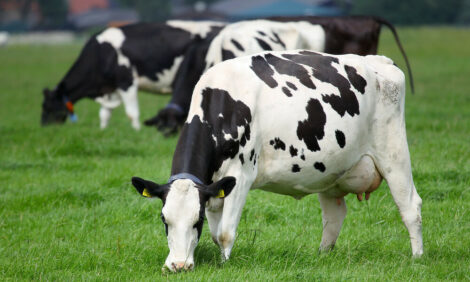



Improved Efficiency Is Key To Reduced Emissions
UK - Dairy farmers can improve the efficiency of their businesses and reduce their farms’ greenhouse gas (GHG) emissions at the same time. That’s the key message from a series of factsheets just published by DairyCo.The factsheets build on research and development previously carried out by DairyCo, and complement a series of case studies demonstrating what some dairy farmers have already achieved to reduce their GHG and ammonia emissions on-farm.
“Our research shows that farmers who have made changes to reduce emissions of the three main greenhouse gases, methane, nitrous oxide and carbon dioxide have also seen a significant improvement in productivity and overall business efficiency – it’s a win-win situation,” explains DairyCo research and development manager Dr Karen Wonnacott.
“As a result we have produced a comprehensive set of factsheets and case studies that clearly show how different dairy farming systems can reduce their GHG emissions and have a really positive impact on their bottom line at the same time.”
On one 136 ha farm in the South Westmilking 140 Holsteins, a number of methods are employed to reduce GHG emissions.
“Fuel and energy costs are a logical place to start,” says Dr Wonnacott, “and the farm has made changes such as using minimum tillage to reduce the number of tractor passes, and feeding a high forage ration, which reduces the amount of purchased feed being transported to the farm."
“But it isn’t just fuel efficiency that reduces costs," says Dr Wonnacott. "Other changes made on farm can include deliberately formulating the cow ration to contain lower levels of protein than would normally be the case for high genetic merit Holsteins. Avoiding excess protein in the diet can reduce the amount of nitrogen excreted by the cows which minimises nutrient wastage. An added benefit is that less imported protein is needed, saving money and reducing GHG emissions associated with concentrate feed production and transport.
"Careful nutrient management has also seen the farm save £200/ha, and over £8000 across the 40ha of maize."
The factsheets and case studies can be downloaded free from the DairyCo library at www.dairyco.org.uk, or ordered via our publications line on 02476 478695.
TheCattleSite News Desk


